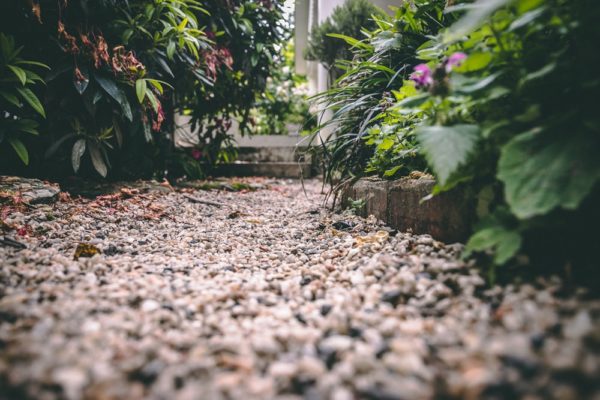Gardens are a lot of work. If it’s part of your home, then usually you don’t mind. But if you’re overworked, or keeping a garden is part of a rental property, that’s another matter. Hiring a professional gardener may be necessary if the property is rented for part of the year, or year-round.
Tenants aren’t necessarily going to care about a garden’s upkeep or feel it’s their responsibility unless it’s written into the tenancy agreement. Therefore, landlords must make other arrangements to avoid the garden becoming a negative eyesore, which will make it harder to let in the future and upset the neighbours.
Here are 5 tips for keeping the garden in good condition.
1. Avoid Hanging Baskets in the Front or Rear
Hanging baskets are a useful way to make a rental property more attractive when you are looking for a tenant, but they need a lot of maintenance during hot weather and tenants may not want the responsibility. That means it is down to you or a gardener to keep them in good condition.
Hanging baskets are quick to lose water when it’s very hot; they need watering once or twice a day. So, either you or a gardener who is infrequently attending the property may struggle to keep them healthy.
2. Fertilise the Lawn Annually
Lawn care benefits greater from applications of fertiliser. Once a year is sufficient, otherwise, the roots will fail to grow as successfully. As long as the soil is enriched, the grass has what it needs.
Springtime is best for adding fertiliser. However, if you have only recently bought the property, then don’t despair if it wasn’t done. The autumn also works fine, as long as winter isn’t almost upon you.
There are different approaches to fertilising a lawn. Some gardeners use Epsom salts because it has sulphur and magnesium. These encourage growth and assist in generating more chlorophyll than plants produce from sunlight. Mixing the salts in water to spray across the lawn can be an effective to cover a large area quickly. Other materials used as a fertiliser might be fine.
3. Tackle Lawn Weeds Before They Spread
According to the RHS weeds grow exponentially when they are not removed promptly. It doesn’t take long before they’re ruining the lawn.
Lawns can become starved of essential nutrients as they begin to get crowded out. Other resources such as sunlight and water also are less available with an increase in lawn weeds.
Use a weed treatment that doesn’t damage grass seeds. If you need to use grass seeds to fix bald lawn patches, harsh weedkiller products may prevent grass seeds from germinating properly. Therefore, apply treatments with due care.
4. Stick to Plants That Grow Locally
Plant management is made easier when they’re indigenous to the county or local climate. If you’ve purchased a rental property, the plants could be somewhat more exotic and harder to manage for your gardener.
If your gardener reports that they’re having difficulties because the flowers are less suitable for the British weather, then don’t hesitate to replace them with more common species in the UK. It will reduce the necessary upkeep; the tenants aren’t going to mind either way.
Be sure to advise the gardener to purchase plants that aren’t in full bloom. These have adjusted to their current environment and may not survive the move to a different one. Plants with a few buds peeking out are the better choice.
Plant low maintenance shrubs rather than bedding plants, as these will only require a tidy-up once a year or so. It’s less work for a gardener (or you).
5. Patio and Decking Maintenance
Keep a close eye on pathways, patios, and decking areas. These often become damaged over the years. Decking timber deteriorates and rots. Paving stones sink or crack. Uneven paving and rotten decking are an accident waiting to happen. If you spot any problems during a property check, or your tenants report issues, get them fixed as soon as possible.
It is worth investing in landlords insurance coverage including liability insurance to cover for accidents. Whilst it’s always best to prevent an accident, insuring against it offers added protection for landlords.
Tenants could slip and fall on a slippery deck in wet weather or fall through a hole in rotten timber. They might trip up on a cracked paving slap and break an ankle. All these scenarios might mean a claim against you, the landlord.
Accidental damage coverage under landlords insurance can provide peace of mind for landlords.
Follow the above steps for keeping a garden at a rental property in better condition. It’ll make everyone’s life easier as a result.

